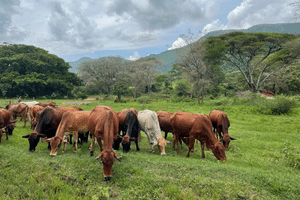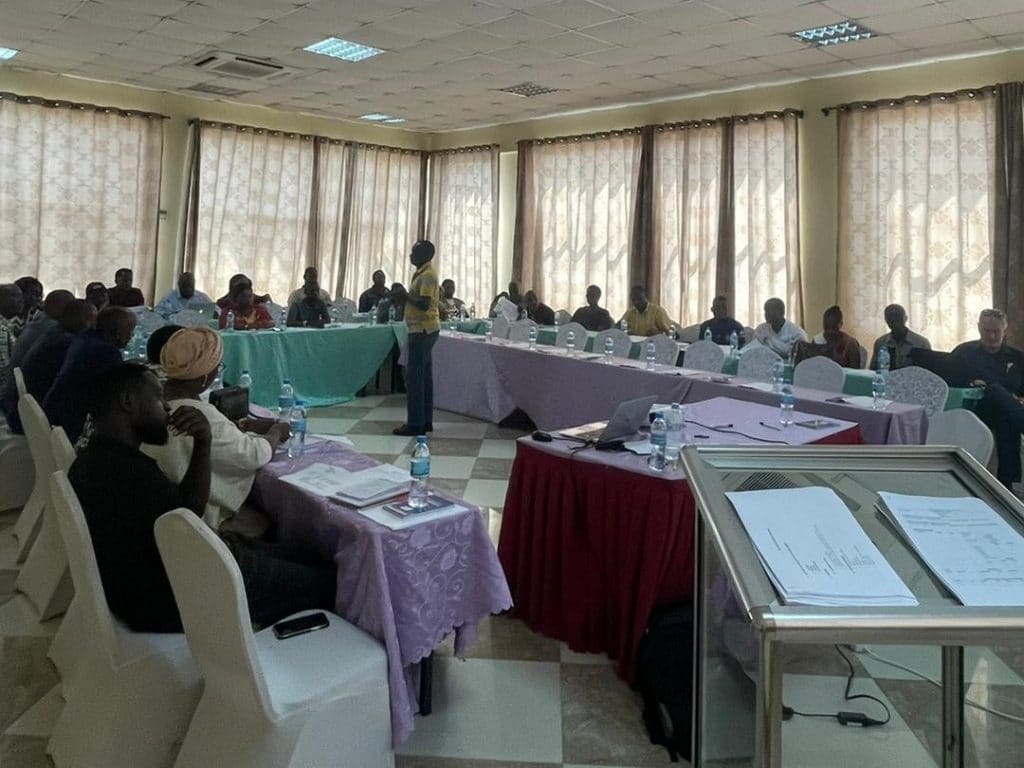The U.S. Grains Council (USGC) continues to focus on developing future markets for U.S. coarse grains globally, including those in Sub-Saharan Africa. It holds great potential for significant growth within the feed and livestock sectors in the coming years, as demand for animal sourced foods will grow rapidly within the region due to population growth, urbanization and increased consumer purchasing power.
Domestic food demand across the region is estimated to triple by 2050, creating a major opportunity for growth and expansion of the feed and livestock sectors, all while these sectors continue to face key challenges and constraints that hinder growth. Recognizing this, the Council remains focused on supporting the feed and livestock industries across the region, including in Kenya and Tanzania in East Africa.
Last week, the Council hosted a series of livestock programs in Tanzania, one focused on poultry keeping and management and another on swine production and management. The Council has been engaged in Tanzania since 2013, beginning with its Food for Progress program (FFP), which concluded in 2019, and today, with its market access program (MAP) and agricultural trade promotion (ATP) projects.
The Council’s FFP program supported the development of the poultry and feed industry in Tanzania, through a variety of mechanisms, including capacity building seminars with the poultry industry focused on improving broiler and layer production. More than 2,400 poultry producers were trained over the five-year program, improving the productivity, efficiency and professionalism of poultry operations there. Capacity building remains a key constraint of the poultry and feed industry in Tanzania, and as such, the Council continues to prioritize supporting the local industry through training seminars. While the Council was unable to host in-person training seminars in 2020 or 2021 due to the COVID-19 pandemic, the organization is excited to begin reengaging with the poultry industry in Tanzania in 2022.

The Council is also looking for opportunities to expand its engagement within the broader livestock sector in Tanzania, specifically in the dairy, cattle and swine industries. The Council hosted its first-ever swine management training program there last week. Two sessions took place – one in Arusha and one in Dar es Salaam – where more than 100 swine producers attended. Topics during the swine production trainings included breeding, feed formulations and biosecurity prevalence.
While in Tanzania, Council staff also met with key stakeholders within the feed and livestock industry, including representatives of the Ministry of Agriculture and Livestock in Dodoma and Mpwa Mpwa to discuss the key challenges facing the feed industry in the country. These conversations were timely as the Council is exploring opportunities to promote alternative feed ingredients in Tanzania, including distiller’s dried grains with solubles (DDGS), as the feed industry works to meet growing demand for quality animal feeds. DDGS has the potential to help the feed industry in Tanzania combat high prices and often low availability of key feed ingredients, particularly protein ingredients.
About The U.S. Grains Council
The U.S. Grains Council develops export markets for U.S. barley, corn, sorghum and related products including distiller’s dried grains with solubles (DDGS) and ethanol. With full-time presence in 28 locations, the Council operates programs in more than 50 countries and the European Union. The Council believes exports are vital to global economic development and to U.S. agriculture’s profitability. Detailed information about the Council and its programs is online at www.grains.org.

